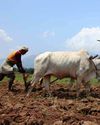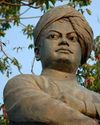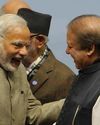Vivekananda believed that the caste system could only be destroyed through the free market and competition.

THE BIGGEST POLITICAL truth of Vivekananda’s life was that he came from a country which was under colonial rule. So what did he think of nationalism, which was sputtering to life all around him? What did he think of the idea of an independent India?
I think the answer to this, first, is given in a rather funny tale. It features in the writings of Marie Louise Burke, who, in turn, quotes from the notes of another prominent follower of Swami Vivekananda in America, Mary Tappan Wright, wife of Professor John Henry Wright of Harvard who facilitated Vivekananda”s participation at the Parliament of Religions. The incident takes place when Vivekananda is staying at Annisquam, a little New England village. The swami tells a tale after supper.
“It was just the other day,” he (Vivekananda) said, in his musical voice, “only just the other day—not more than four hundred years ago…Ah, the English, only just a little while ago they were savages…the vermin crawled on the ladies’ bodices...and they scented themselves to disguise the abominable odour of their persons...Most hor-r-ible! Even now, they are barely emerging from barbarism.”
This shocked some of his listeners. One of them said—that’s not true, this was almost 500 years ago!
This story is from the March 2017 edition of Swarajya Mag.
Start your 7-day Magzter GOLD free trial to access thousands of curated premium stories, and 9,000+ magazines and newspapers.
Already a subscriber ? Sign In
This story is from the March 2017 edition of Swarajya Mag.
Start your 7-day Magzter GOLD free trial to access thousands of curated premium stories, and 9,000+ magazines and newspapers.
Already a subscriber? Sign In

Refuging Progess
There is a well-orchestrated global conspiracy to deny scientific and technological developments from the West to Third World countries.

The Monk Of Science
Vivekananda believed that Religion should be subjected to scientific methods of investigation. The third and concluding part of our series on the Swami and his views on science.
The Next Step
Indian technical manpower can be trained for high-value-added emerging services in the era of mass commoditisation of hardware.
The Threat Of Autarchy
The force of globalisation is an irreversible reality, and it is countries like India and China that will nurture it going forward.

Neanderthals: The Womb Of Caves
Recent discoveries indicate that Neanderthals may have had a rich inner life, including symbolic thought. Indeed, they may have been the progenitors of human religions.

Getting India's World Right
Incremental concessions will get India nowhere with Pakistan and China. What we need is a classically conservative foreign policy, based on realism.

The Hesitant Orbit
In order to march boldly ahead into the deep space, New Delhi must work towards building a station, boost its techno-economic planning and use the Indian Space Research Organisation smartly.

Nudges And Narratives
The debate surrounding Sanjay Leela Bhansali’s Padmavati brings India a complex network of portraits within a cultural world-system.

The Spell Of Specialisation
THE INDIAN ADMINISTRATIVE SERVICE NEEDS AN URGENT REJIG. THE KEY TO SPEED AND EFFICIENCY LIES IN PUTTING AN END TO A GENERALIST APPROACH AND IN GOING FOR A NEW SERVICE.
The Great Gamble
With demonetisation, the prime minister has taken a huge risk— both economic and political. He must succeed, because this move could transform both our economy and our society.